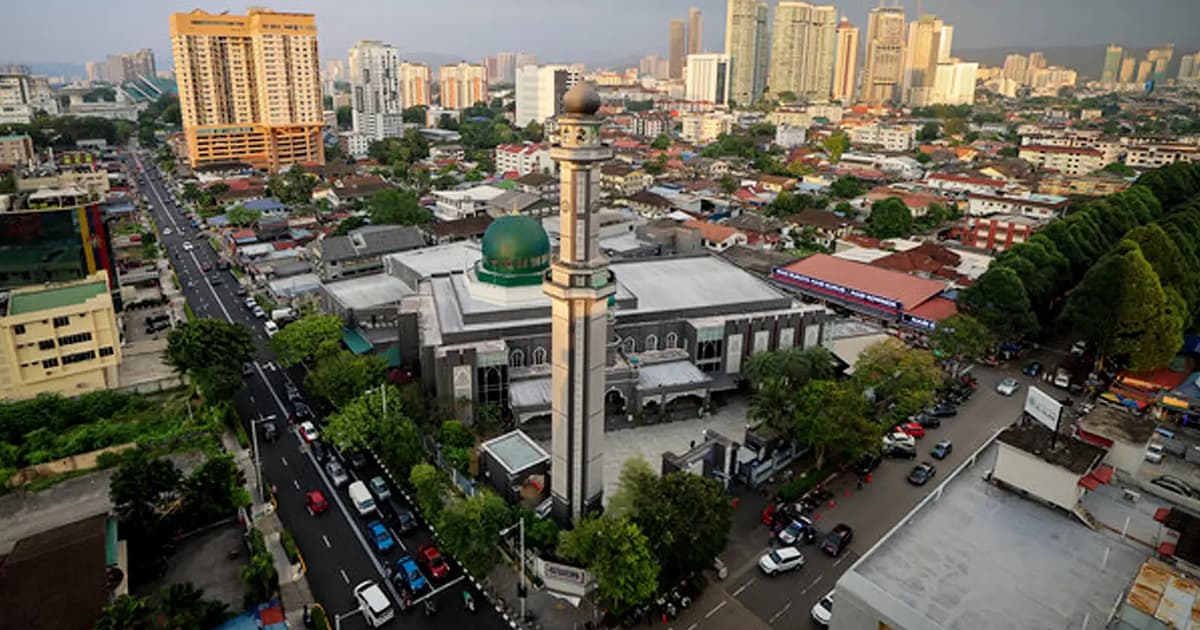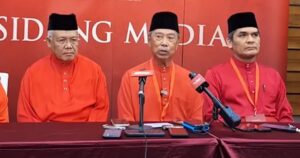
I went “balik kampung” recently, as part of my tour of the north, which included Langkawi and south Thailand, driving 1,300km with a spine constantly complaining about the stress and strain.
It’s always good to “balik kampung”, even if fewer people or things remain from my childhood days, on account of human mortality and possibly human greed.
The kampung food is still there, albeit without the quality of old that my increasingly-suspect mind recalls. Wasn’t the food always great in the old days, and didn’t they use to give it away for free? Anybody remember that?
Many old things and people are gone. Some remain, while many new things, and people too, have taken over.
I increasingly notice how depressing life is for many in my kampung. I hear a lot of stories of dysfunctional families, many wrecked by drugs and other issues of economics and mental health. Broken homes, men in prison, children fending for themselves.
I grew up in poverty, but we didn’t have this kind of hopelessness baked into it. The nation was young and people believed things would get better. There were fewer rich people around to remind us of how poor we were, and the rich weren’t ostentatious show-offs bragging about their wealth as they do now in social media posts.
My kampung was, and is, a multi-racial Penang kampung. I won’t claim to know about the lives of those not around me or close to me. I’m sure enough of them also live their own lives of quiet desperation.
Web of poverty
But I do know of many Malay families whose lives haven’t improved much, who are still caught in the webs of poverty and desperation.
It gets depressing when these are people who I know or who I grew up with, and increasingly it is their children and grandchildren too.
If fate hadn’t smiled at me, perhaps that would have been my future as well. But my fate, and my future, was nurtured by my parents.
My illiterate mother was from a wealthy merchant family. The wealth had vanished by my mother’s time. She remembered it, but didn’t dwell on it.
There were signs of the good old days that remained, such as a decaying mansion with a small concrete pool, where they used to keep pet crocodiles!
What my mother did dwell on was about education being the ticket to a better life. Uneducated as they were, my parents had the native intelligence to know that about education.
Their intelligence would’ve taken them far had there been the opportunity. They didn’t have the opportunity, but I did, more by luck than by anything else.
Long story short, life turned out OK for me, but it’s not OK for the many in the kampungs.
Paradox of plenty
True, people have more nowadays – electricity, running water, modern conveniences and access to healthcare and education. People live longer, even if not always healthier or happier.
But Malays really have less excuse for why things didn’t turn out better. While we hate to admit it, we have nobody else to blame.
In the kampungs, I don’t see the same focus on education that my parents had. I don’t see the same push to grab every educational opportunity that comes our way, as my parents told me to do, to further my education, regardless of wherever it takes me.
As they couldn’t afford to fund me, I shouldn’t turn away any good fortune that would come my way.
I don’t think many in today’s Malay society quite see it this way. Education is looked upon as just a matter of sending kids to school, increasingly religious schools at that, or at least for religious education.
Many Malay kids do just enough to meet the minimum school requirements and drop out to look for work, often a factory job or an irregular job – as long as it’s not too hard or dangerous or low-paying.
The best job for many is a regular salaried job especially with the government or the many businesses associated with the government.
Malays monopolise those jobs, convincing ourselves we have a right to them because we, as Malays, have special rights due to some social contract or constitutional clauses.
The insecure majority
We get very insecure and envious – both in wanting to protect the jobs we have as well as desiring the wealth accrued by many who have had to survive and succeed elsewhere.
We know what happened. Politics, corruption, religious extremism, all of which are becoming inextricably linked to race, have grown and become a permanent fixture of our society.
Debating whether poor education drove our society to be increasingly fragile or vice versa doesn’t get us anywhere. Hoping and praying that some politicians will sort things out for us is just as futile.
As a society, we haven’t spent the last few decades capitalising on our advantages, especially those brought about by the many affirmative action programmes, to build what really matters – resilience.
The pieces of paper we earn from schools or universities may get us through the front doors of employers perhaps, but they won’t help us survive the inevitable obstacles along the way.
The ecosystems that the Malays find themselves in today – from education to employment to politics – are designed to swaddle us in protective cocoons against the non-Malays.
Through politics we have increasingly built a lot of those Malay-only parallel ecosystems within which we can exist from cradle to grave.
Fearful of change
As the world changes, we become increasingly afraid of it, as the changes increasingly challenge our warm and cosy existence.
Apart from the usual challenges from non-Malays who question our privileges (which we are happily turning into rights) there are the challenges from the outside world too.
The politicians still try to lull us into some sense of security through special privileges – jobs, subsidies, freebies – paid for from the national coffers.
But as time goes by and as we become more and more dependent on these privileges, we start treating them as rights which are due to us and which are beyond question or challenge.
When the real world intrudes, such as shocks to the economy through global turmoil as well as disruptive technologies such as AI we begin to feel more and more vulnerable.
And yet while we agonise about these new challenges, we still haven’t sorted out the old challenges of how to build resilience and independence for the Malays.
As time goes by and as the outside world becomes scarier, it gets harder and harder to wean us away from the warm comforts of special rights that shield us from the brutal real world.
A fragile society
While we’re trying to figure out how to deal with the impact of AI on the economy, we still haven’t figured out how to handle the drug problems affecting our men and boys.
We haven’t figured out how to educate our young with the right skills and mindset to become productive members of society, and not just trained – if you could even call many of them trained – artisans and functionaries.
We really are a fragile society, propped up by a generous and protective political dominance increasingly being run and exploited by political and business elites.
At some point the real world will truly intrude. We won’t be able to employ as many people as we do now in the government or government-related agencies and companies.
We won’t be able to “bribe” our people with bonuses and gifts any more.
We’re seeing that happening already, with many workers being let go by venerable GLCs, which for now anyway, are still able to be generous with their severances.
But that won’t last. The proverbial stuff will hit the fan, and there’ll be a lot of pain around. Whatever social contract or constitutional clauses we used to rely on won’t protect us from this new reality.
While it’s easy, and often justified, to ask for our leaders to fix this and that societal problems, such an approach will never get the Malays out of our “prison” of privileges we’ve inhabited for so long.
Not in our stars, but ourselves
Our “revolusi mental” or the mental revolution needed to shake us out of our complacency won’t come from our political leaders.
It would have to come from within our own selves. We’re the ones who have to accept that we can’t rely on anybody else to solve our problems.
Perhaps the next time we balik kampung, we should be doing more to disturb our fellow kampung folks out of their reverie.
While most kampungs show signs of progress and even affluence, the reality is that many of the people are still stuck in the bad old days of dependency.
We need to wake them up to the actual challenges facing us, or we’ll face hardship and calamity when changes come to the world – both our cosy little world as well as the big world out there.
The views expressed are those of the writer and do not necessarily reflect those of FMT.






